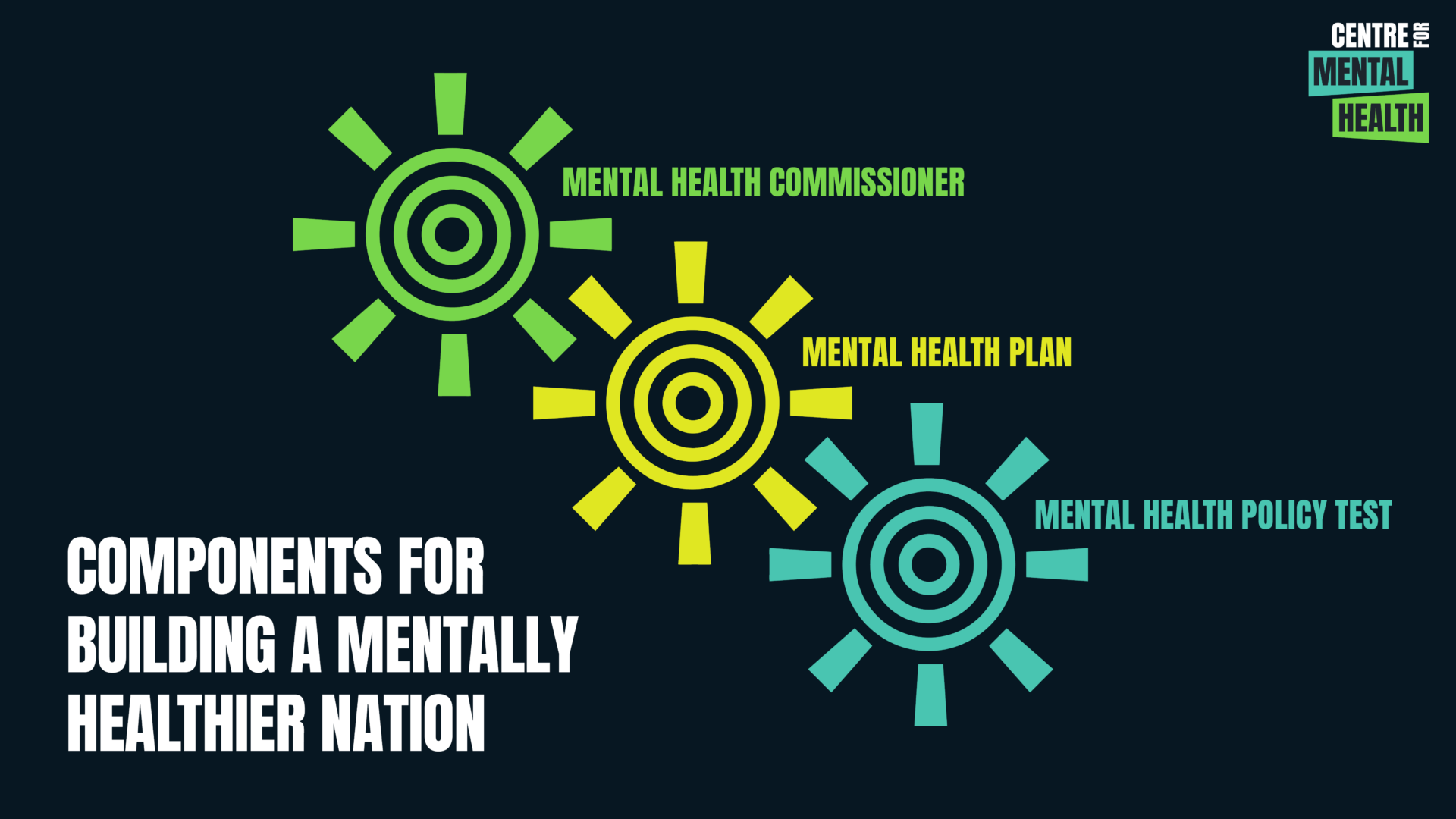The new UK Government is still finding its way through the corridors of power in Whitehall, as the promises of the winning party’s manifesto become the instruction manual for the start of a new Parliament. It’s early days for a Government that has made some significant pledges about how it will seek to improve mental health, boost mental health services, prioritise prevention, reform outdated mental health legislation, and save lives from suicide.
Putting those words into action will take time. Many of those words require investment to be enacted and to make a difference to people’s lives. And there is a lot more for the Government to do to really improve mental health support, from addressing the crisis in social care funding to taking action to make inpatient services safer.
So where to start? In our work to explore what would help to build a mentally healthier nation, we have looked closely at the changes that could be made to the way government works in order to enable and speed up the bigger changes that are needed in the wider world. These are not a substitute for investing adequately in mental health services or for policies that will address the determinants of mental health. But they are all quick, inexpensive, and (most importantly) will give the Government the best possible chance of using its resources wisely, effectively, and equitably.
The first is to get started on a cross-government mental health plan. We’ve provided ideas for what that could look like in A Mentally Healthier Nation. To be effective, the plan would need genuine cross-government commitment – unlike previous such plans, where departments have often just recited actions they were always going to take anyway. Doing this early in the new Parliament means departments can be more flexible in how they use their power and resources to back the plan.
The second is to embed a mental health policy test across government departments. We’ve investigated how this might work in Policies for better mental health. A mental health policy test is a simple but proven way to help governments produce policies that boost the public’s mental health. That’s good for all of us.
The third is to appoint a mental health commissioner to provide sustained leadership for mental health across government. We’ve looked internationally at similar roles and found that it can help by bringing a consistent voice for mental health into the heart of government, rather than depending on the ebb and flow of political interest.
It’s fair to ask, why have a mental health plan, a mental health test and a mental health commissioner? Will they make any difference, and why does mental health need to be picked out in this way? Our research and analysis suggests that, yes, these things will make a difference, if they’re done well, backed up with the right commitment, resources and accountability.
And yes, mental health really does matter. It’s important in itself. A society with rising levels of mental ill health isn’t a healthy society. Mental ill health has an economic and social cost of £300 billion a year. And too many people’s lives are made harder and shorter because of it. But if government can get it right for mental health, it can do so much more. Better mental health drives better physical health. It creates healthier workplaces, schools and communities. The extra benefits from getting mental health right will resonate throughout government and in all our lives.
Fixing the machinery of government may not be an overnight success in terms of changing our lives. But it will lay the foundations for bigger things to come. It will create a mentally healthier government that will in turn build a mentally healthier nation. Big things come from small beginnings.








